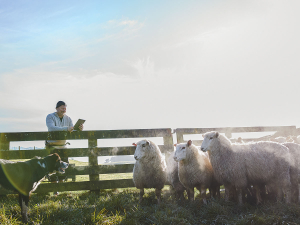Farmer confidence dips slightly, but positivity still dominates
Farmer confidence has taken a slight dip according to the final Rabobank rural confidence survey for the year.
 Farmer confidence looks to be on the rebound according to the latest Federated Farm Confidence Survey. Photo Credit: Paul Sutherland Photography.
Farmer confidence looks to be on the rebound according to the latest Federated Farm Confidence Survey. Photo Credit: Paul Sutherland Photography.
OPINION: Farmer confidence is on the rise.
While concerns remain on farm around high interest rates, poor commodity prices and excessive red tape, the good news is that farmer confidence has risen from last year's record lows.
However, the rural sector isn't out of the woods yet. While Federated Farmers' latest Farm Confidence Survey may show that there has been a positive shift in the rural mood since 2023, when confidence reached its lowest point in the survey's 15-year history, tough times prevail on farm. Farmers are struggling with high inflation, high interest rates and lower commodity prices, and the impact of those on their profitability.
According to Federated Farmers, most farmers are still feeling that general economic conditions are bad, and most are still making a loss.
The survey shows that the four greatest concerns for farmers are debt, interest & banks; farmgate & commodity prices; regulation & compliance costs; and climate change policy & ETS.
The Government, nor anyone else, can do much about farmgate and commodity prices, there's still a lot that can be done to alleviate farmer concerns around banks. An independent inquiry into rural banking would be a good start.
One reason farmer confidence is rebounding is the new Government, which includes a record number of farmers, is talking about a real commitment to roll back some of the more impractical and expensive regulation that's undermined farmer confidence. But farmers want to see action.
Farmers are optimistic they will see confidence continue to lift in the year ahead, helped by an easing of unnecessary regulatory pressure on things like unworkable freshwater rules.
It's all about cutting red tape, making compliance on-farm easier, and getting the primary sector humming again. But for that to happen, the Government must come to the party. The primary sector will be watching closely.
Agrisea NZ has appointed Craig Hudson as it's new chief growth officer.
State farmer Landcorp, trading as Pamu, is a forecasting a full-year net profit of around $100 million.
Tony Aitken, chief executive of Ruralco, has been awarded the Excellence in Business Leadership Award at the ANZ Business of the Year Awards.
Global trade has been thrown into another bout of uncertainty following the overnight ruling by US Supreme Court, striking down President Donald Trump's decision to impose additional tariffs on trading partners.
Controls on the movement of fruit and vegetables in the Auckland suburb of Mt Roskill have been lifted.
Fonterra farmer shareholders and unit holders are in line for another payment in April.
OPINION: Staying with politics, with less than nine months to go before the general elections, there’s confusion in the Labour…
OPINION: Winston Peters' tirade against the free trade deal stitched with India may not be all political posturing by the…